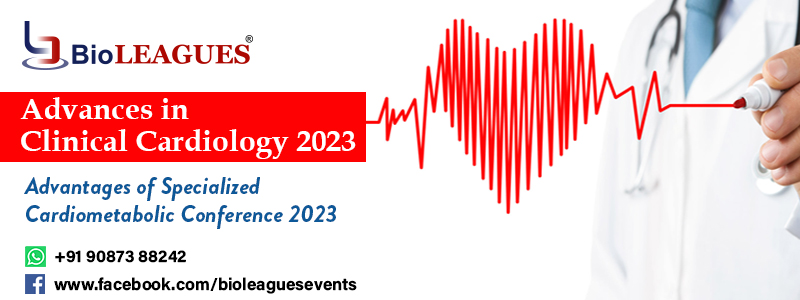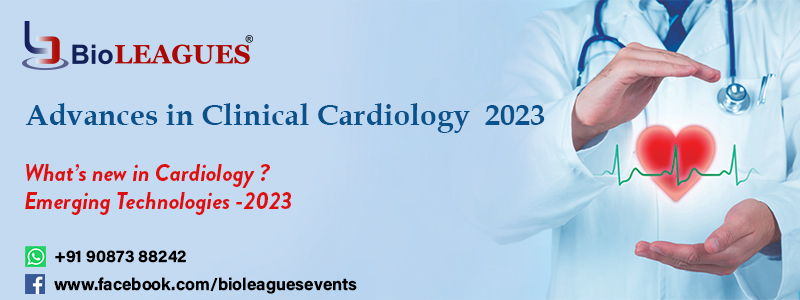What’s new in cardiology ? Emerging technologies -2024
The Core of the New Aspect: Innovative Technology in Cardiology’s Future
Cardiovascular diseases have a wide diversified presentation, many Innovations like device therapy to novel cell and gene-based therapies are part of a technological revolution. Cardio metabolic health congress will bring about a few major noteworthy emerging cardiovascular technologies.
The emergence of miniature ventricular assist devices has revolutionized the care of patients with advanced heart failure, as a bridge to transplantation. These new VADs have been designed with mechanical modifications and newer modes of operation have limited the rates of hemolysis, thrombosis, and secondary aortic valve insufficiency.
Conformal electronics have high spatiotemporal resolution and are composed of a system of various sensors and transducers. By following the structure of the epicardium or endocardium, conformal electronics analyse several factors to control and maintain cardiac tissue activities. By permitting the emergence of new equipment, conformal electronic technology has the potential to alter the present system of cardiac diagnostics and therapies. Also, new minimally invasive methods to access the epicardial tissue are likely to facilitate the clinical adoption of this technology.
Discovery of Novel Embolic Protection to Prevent Strokes in patients with atrial fibrillation who are at risk of high bleeding, which is currently being tested in preclinical studies, might be translated shortly to treatments.
The field of (TMVR) is constantly rising. Mitral Valve Modulation and Repair have the potential to become alternatives to surgery for specific patients. TMVR devices can be differentiated according to the portion of the mitral valve; early results of novel TMVR technologies seem promising but the long-term sustainability and effectiveness have not been determined.
A noteworthy Upcoming cardiometabolic conference showcases tissue engineering techniques that use cells and regenerative medicine to treat heart disease & promising new approaches in cardiovascular research. In Cardiac Decellularization and Engineered Heart Tissue, the scaffolds, cells, and appropriate growth factors are needed to enable the reconstruction of new tissue. Since the biomaterial is essential for human cells’ correct functioning and adhesion. A decellularized heart composed of a native extracellular matrix can provide a complex, unique, and natural scaffold that offers the physical and chemical signals required for cardiac function.
Intra-aortic balloon pumps (IABP) for hemodynamic compromise patients may not be optimally balanced; therefore, various devices have been developed to provide other advanced measures of circulatory support. Devices like extracorporeal oxygenation (ECMO) provide patients the opportunity to avoid mechanical ventilation. For extremely serious situations, compact, portable devices that provide ventilatory & systemic assistance are being created.
The burden of congenital or acquired heart valve defects is high globally. Despite several limitations, bioprosthetic or mechanical replacement valves are often used. Personalized heart valve transplants could be possible thanks to a synthesized, resorbable scaffold.
Improve & Invent: Evolving Techniques and the Impact on Cardiology Care
Although life-threatening rhythm disorders may be efficiently treated with implantable cardioverter defibrillators (ICDs), the ability to accurately determine which patients will benefit from these measures is currently limited. Computational tools generally known as artificial intelligence (AI) may soon enhance our ability to predict the occurrence of life-threatening arrhythmias and thereby, provide earlier preventive and therapeutic interventions. The increased usage of portable cardiac monitoring systems, as well as the capacity to execute advanced analysis of ECG and other electrophysiological data, is predicted that will further transform the domain of machine learning-based cardiology treatments.
Electrophysiologic imaging, as well as the methodologies and instruments that can be employed to efficiently eradicate the arrhythmic substrate, have evolved dramatically. Combining these tools in the electrophysiology (EP) lab with robotic navigation systems may lead to more precise ablation procedures for difficult cases while reducing radiation exposure.
Hazards linked with cardiac devices include the necessity for battery replacements on a regular basis, leading failure, infections, & restricted application in young patients. Recent breakthroughs in induced pluripotent stem cells technologies and trans-differentiation approaches may revolutionize the treatment of bradyarrhythmia’s and heart failure. Ventricular & pacemaker cells which have been created in preclinical studies both in vitro and in vivo. Before all these new technologies can be employed to substitute electrical cardiacpacemakers & cure patients with heart failure, seek professional help technique based on cell (and gene) grafts to the organ level, assuring survival rate, as well as analysis approach safety are required.
Advantages of Specialized cardiometabolic conference 2024

Attending a cardiometabolic congress and participating in specialized keynote discussions have several advantages over receiving treatment from a primary care physician or internist. The surprising advantages are:
1. The more specialized knowledge.
To acquire new information, all doctors and young medical students must attend the International cardiometabolic conference. To become a cardiologist, however, a research student must do it at least once a year to gain specialized knowledge that will allow more effective treatment.
2. The most pertinent experience.
Cardiologists with International Conference can encounter new treatments for patients with heart problems daily. As a result, they gain specialized experience in the area, which allows them to more correctly diagnose & treat problems.
3. Amazing access to reliable equipment.
You will have instant access to the tools required to thoroughly examine a patient if you have modern technical knowledge; many cardiologists attend cardiometabolic risk summits to learn about the new equipment. It enables the cardiologist to accomplish critical surgery quickly.
4. Excellent collaboration with other experts.
Because of significant collaborations, cardiologists can seek advice from the heart specialists, such as clinicians with other experts if additional treatment is required.



